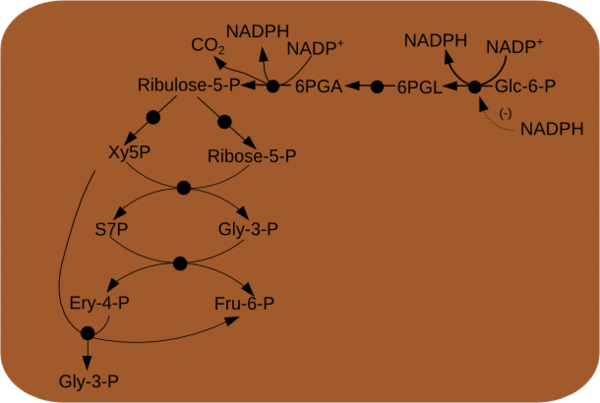Pentose Phosphate Pathway
The pentose phosphate pathway is a process used to generate NADPH and pentoses (5-carbon sugars). This pathway is composed of two distinct phases. The first is the oxidative phase, in which NADPH is generated, and the second is the non-oxidative synthesis of 5-carbon sugars. This pathway is an alternative to glycolysis. Although it does involve oxidation of glucose, its primary role is anabolic rather than catabolic.
Contents
Description of the model
This diagram describes the set of reactions that take place in the pentose phosphate pathway. The dotted line means there is inhibition of an enzyme.
Reactions
- Glucose-6-Phosphate Dehydrogenase
- 6-phosphogluconolactonase
- 6-phosphogluconate dehydrogenase
- Ribulose 5-phosphate 3-epimerase
- Ribose 5-phosphate isomerase
- Transkelotase
- Transaldolase
Alternative
- Constant flux can be used
| Parameter | Value | Organism | Remarks |
|---|---|---|---|

|

|
Constant Flux |
Parameters with uncertainty
Alternative
| Parameter | Value | Organism | Remarks |
|---|---|---|---|

|

|
Constant Flux |

